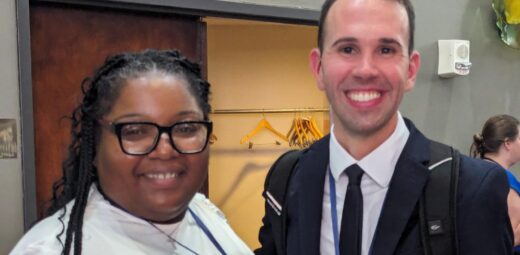
Jul 29How PEP Boosts Housing Access For People Experiencing Homelessness
When our nation faces a severe affordable housing crisis, it doesn’t make sense that affordable housing units would remain empty for weeks or even months. However, this problem exists in cities nationwide and has concerned housing organizations for years.
The root of the problem is that housing waitlists are long, and it could be months or years before a person’s name floats to the top of any given list. Because homelessness is often transitory, it can take weeks for Housing Navigators to connect with the individual. When (if) they locate that person, obtaining the documentation they need to be approved can take several more weeks. The available unit might also not fit their unique needs and preferences, so they may pass on it, and the process starts again with the next person. It can take months to fill the available unit – time wasted.
Thankfully, housing leaders in Chicago are working to improve the current system’s efficiency. The Chicago Coordinated Entry System, which connects people with housing opportunities in Chicago, partnered with the Harvard Government Performance Lab and housing organizations like Mercy Housing Lakefront to pilot the Proactive Engagement for Permanent Supportive Housing (PEP) program.
This pilot assigns Housing Navigators to people on the waiting list much earlier in the process with the goals of reducing unsuccessful referrals and reducing the time from referral to move-in. Housing Navigators pre-engage participants by locating them and then helping them obtain the documentation they need to be approved. Since most Permanent Supportive Housing units are single-room occupancy units, and that type of housing doesn’t work for everyone, Housing Navigators also provide a packet of details and photos about available units so people can make an informed choice to opt in or out before being referred. The pilot program’s results have shown tremendous gains in increasing the success and efficiency of moving people into housing.
In June, Laquila Sawyer, Housing Supportive Specialist at Mercy Housing Lakefront, presented with Jacob Storck, Senior Program Manager, Coordinated Entry at All Chicago, at the 2024 Home Illinois Summit this past June on the pilot’s success.
A positive outcome of the pilot program is the addition of weekly targeted case conferencing meetings, which bring together staff from The Chicago Coordinated Entry System, Housing Navigators, and housing organizations like Mercy Housing Lakefront to review and assess the status of people on the waiting list. We are happy to share that the pilot program successfully met its goals and is helping to move people into housing more quickly.
No related posts.
Stay Up To Date
Get news on Mercy Housing and inspiring stories of change delivered to your inbox.


